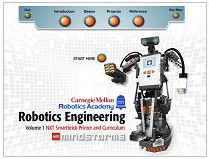The President's
Council of Advisors on Science and Technology Workforce/Education
subcommittee (PCAST) recently released a report that helped
crystallize what will happen to the nation's economic innovation
engine if we do not inspire a larger number of American children to
pursue advanced degrees in science and technology. While U.S.
students' interest in science, technology, engineering and
mathematics (STEM) careers is declining, foreign countries are
significantly increasing the number of STEM graduates coming out of
their universities. The number of STEM graduates enables these
countries to attract venture capital that has led to a large number
of technology-based jobs. Asian countries are graduating eight times
the number of engineers as the United States is graduating. In the
future, as in the past, our nation's ability to compete economically
will be determined by its ability to innovate and commercialize
ideas. Louis Pasteur implied that creativity and innovation happen
when opportunity meets a prepared mind.
The Carnegie Mellon
University (CMU) National Science Foundation (NSF)-funded Research
Experience for Teachers (RET) is helping to place millions of
American children in research and engineering experiences designed to
prepare their minds for innovation. CMU is using robotics to inspire
a larger percentage of children to pursue STEM careers. The CMU
Robotics Academy curriculum developed in this project is currently
being used in over 4000 schools nationwide.
Over the past
three years, CMU has offered an RET that places teachers in the
position of researchers. Teachers spend five weeks at the National
Robotic Engineering Consortium, where they interact with CMU research
faculty and staff involved in solving today's robotic problems.
Teachers learn how robots work, and are then guided to develop
lessons that they can take back to their classrooms. The RET
experience has led to the development of curriculum materials that
use robotics as the organizer to explicitly teach STEM. The
CMU-developed curriculum places students in the role of researchers
where they are required to prove concepts using fundamental
mathematics, and do science rather than study it. After the students
participate in the guided research experiences, they are challenged
to solve engineering design problems. Scaffolding for student
learning is supplied through a sequence of guided activities on a
multimedia CD-ROM, which provides suggestions, background
information, and reference material for students. A separate CD
guides the instructor, providing templated lesson plans, assessment
guides, answer keys to interim quizzes, and support material on both
inquiry-based instruction and domain-specific information about
robots.
CMU is building on other NSF funded research. It is
working with the University of Pittsburgh's Learning Research and
Development Center (LRDC), which has been funded through the Math and
Science Partnership Program (MSP). The LRDC MSP is named System-wide
Change for All Learners and Educators (SCALE). The SCALE program
forms teams consisting of cognitive scientists, educators, content
specialists, curriculum experts, and administrators working together
to develop Immersion Units in which students learn academic content
by working like scientists: making observations, asking questions,
conducting further investigations to explore and explain natural
phenomena, and communicating their results based on evidence. CMU is
using the LRDC model and receiving LRDC feedback during its
development cycle. CMU has developed instructional modules for both
LEGO® and RadioShack, and will release a CMU/LEGO co-branded
curriculum that will support the next generation LEGO Mindstorm
robot. The end goal of the CMU research is to develop our nation's
intellectual capital, enabling American students to compete in the
global innovation ecosystem where thinking and problem-solving are
the "new basics" of the 21st century.
Partner:
University of Pittsburgh
More Photos:

|
CMU
Robotics Academy-Robotics Engineering
Credit: CMU/Robin Shoop
Permission Granted
|
